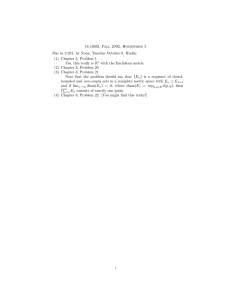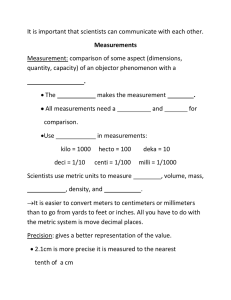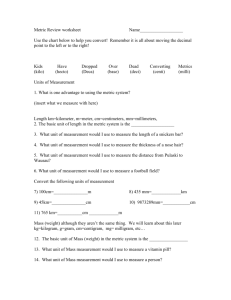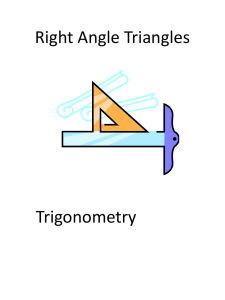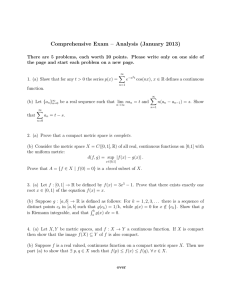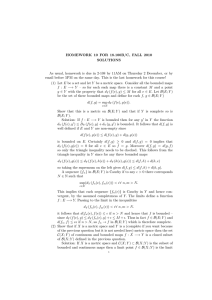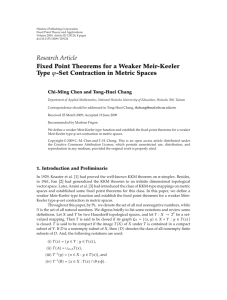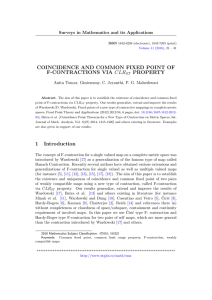HOMEWORK 10 FOR 18.100B/C, FALL 2010 DUE THURSDAY 2 DECEMBER
advertisement
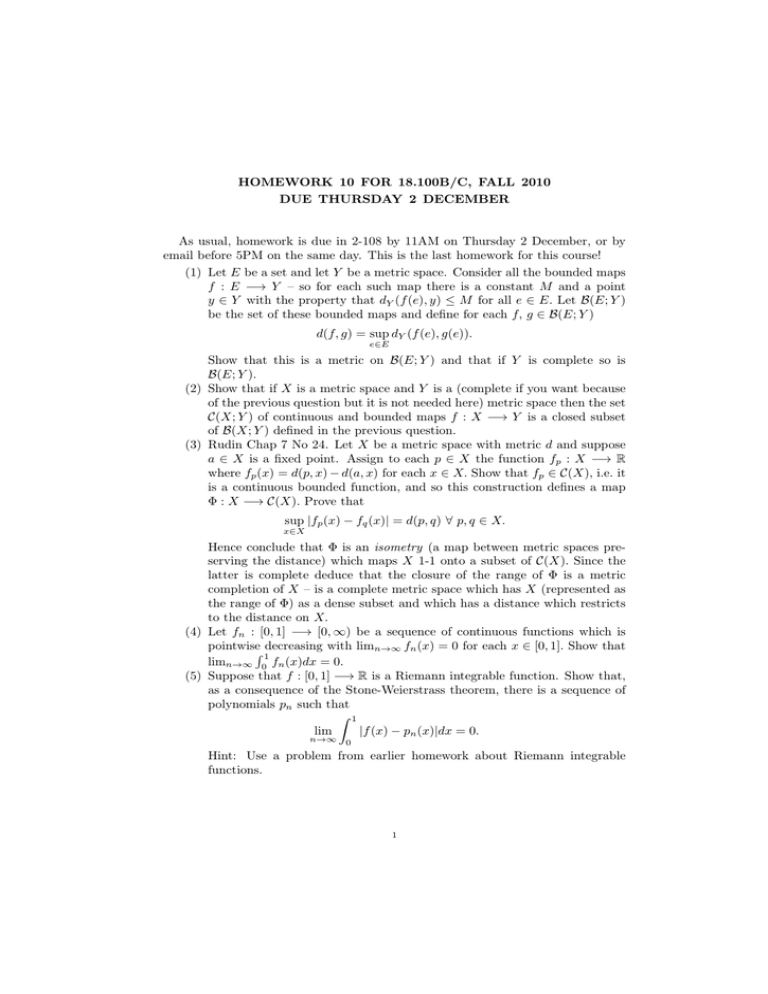
HOMEWORK 10 FOR 18.100B/C, FALL 2010 DUE THURSDAY 2 DECEMBER As usual, homework is due in 2-108 by 11AM on Thursday 2 December, or by email before 5PM on the same day. This is the last homework for this course! (1) Let E be a set and let Y be a metric space. Consider all the bounded maps f : E −→ Y – so for each such map there is a constant M and a point y ∈ Y with the property that dY (f (e), y) ≤ M for all e ∈ E. Let B(E; Y ) be the set of these bounded maps and define for each f, g ∈ B(E; Y ) d(f, g) = sup dY (f (e), g(e)). e∈E Show that this is a metric on B(E; Y ) and that if Y is complete so is B(E; Y ). (2) Show that if X is a metric space and Y is a (complete if you want because of the previous question but it is not needed here) metric space then the set C(X; Y ) of continuous and bounded maps f : X −→ Y is a closed subset of B(X; Y ) defined in the previous question. (3) Rudin Chap 7 No 24. Let X be a metric space with metric d and suppose a ∈ X is a fixed point. Assign to each p ∈ X the function fp : X −→ R where fp (x) = d(p, x) − d(a, x) for each x ∈ X. Show that fp ∈ C(X), i.e. it is a continuous bounded function, and so this construction defines a map Φ : X −→ C(X). Prove that sup |fp (x) − fq (x)| = d(p, q) ∀ p, q ∈ X. x∈X Hence conclude that Φ is an isometry (a map between metric spaces preserving the distance) which maps X 1-1 onto a subset of C(X). Since the latter is complete deduce that the closure of the range of Φ is a metric completion of X – is a complete metric space which has X (represented as the range of Φ) as a dense subset and which has a distance which restricts to the distance on X. (4) Let fn : [0, 1] −→ [0, ∞) be a sequence of continuous functions which is pointwise decreasing with limn→∞ fn (x) = 0 for each x ∈ [0, 1]. Show that R1 limn→∞ 0 fn (x)dx = 0. (5) Suppose that f : [0, 1] −→ R is a Riemann integrable function. Show that, as a consequence of the Stone-Weierstrass theorem, there is a sequence of polynomials pn such that Z 1 lim |f (x) − pn (x)|dx = 0. n→∞ 0 Hint: Use a problem from earlier homework about Riemann integrable functions. 1
